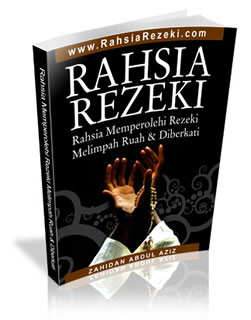Tuesday March 16, 2010
FINANCIAL advisers will tell you that if you want to maintain a desirable standard of living in retirement, effective financial planning often requires being prepared to commit in advance to your financial obligations.
For those whose retirement date is in the horizon, you should perhaps take stock of your tax situation.
What can be done to the salary arrangements with your employer so that you could defer taking part of your salary and have it paid into a “tax shelter”?
The term tax shelter in this context is intended to apply to certain payments paid to you on retirement, which are exempt from tax.
Thus, your entitlement to tax free status is protected under the law provided the payments qualify. The two most common payments under this category are retirement plan payments and retirement gratuities.
Retirement plan payments
These would typically apply to your payments to the Employees Provident Fund (EPF).
Under the EPF rules, withdrawals from the fund may be made under certain circumstances, the most common of which is when you reach retirement age.
This is recognised by the EPF to be 55 years for both men and women i.e. these are the “retirement” withdrawal dates.
When you receive payments from the EPF, the whole amount is exempt from tax.
The exempt status is available under the tax law and not under the EPF rules.
Thus, the cumulative sum of all your past contributions plus attributable interest or dividends would benefit from the exemption.
Retirement gratuity payments
The tax law provides for specific exemption on the amount of gratuity, which your employer makes to you on retirement.
Such payments are intended to reflect your employer’s appreciation of your past services and the exemption is not subject to any limit as to quantum.
It is, however, subject to you having “retired” from employment, which is a question of fact taking into consideration all the prevailing circumstances.
Should there be any doubt as to whether you have in fact “retired”, it would be wise to seek competent professional advice to ensure that your entitlement to exemption is valid. This is especially important when you are being asked to stay on by your current employer.
Salary sacrifice
A salary sacrifice is when an employee gives up his right to receive part of his cash pay which is due to him under his contract of employment.
It is normal for the sacrifice to be made in return for some benefit, which is not in cash form and either not taxable to the employee or taxable at a smaller amount.
If you sacrificed part of your cash pay in return for your employer increasing its contribution to your EPF to a maximum of 19% instead of the statutory limit, you will effectively have increased your potentially tax-free income when you receive it at retirement.
Your current tax bill will also be reduced in view of your reduced taxable cash pay.
You will not be able to exceed the 19% limit as your employer will suffer a tax disallowance; the idea of a salary sacrifice is that it should not involve additional tax cost to your employer.
A salary sacrifice involving an increase in the amount of retirement gratuity you will be receiving at retirement may be implemented in limited situations e.g. when your employer has established a specific employee retirement gratuity plan.
Otherwise your salary sacrifice will not be matched by a corresponding assumption of contractual obligation on the part of your employer.
The salary sacrifice affects the terms of contract between the employer and employee and is therefore a matter of employment contract law and not tax law.
Tax law looks at the new contractual terms and the tax effect would arise according to those terms. In essence, tax law looks at the legal form and legal substance of the contractual arrangement.
Heaton vs Bell principle
This British case established the principle that where an employee adopts a salary sacrifice with the right to revert to the original gross salary at any time, then the salary sacrifice will not have been effective.
Carrying on working
If you plan to be re-employed following retirement and it is with the same employer, then you should consider whether this is likely to affect your retirement status i.e. whether you may not be entitled to the retirement gratuity exemption.
In most cases, there should not be a problem where the new job reflects different roles and responsibilities.
If you are to be retained as an adviser or consultant, you should consider setting up a personal service company if you can benefit from the reduced rate of 25%.
In general, it may be wise to seek appropriate professional advice particularly when you sense that your tax affairs tend to become more complex.




No comments:
Post a Comment